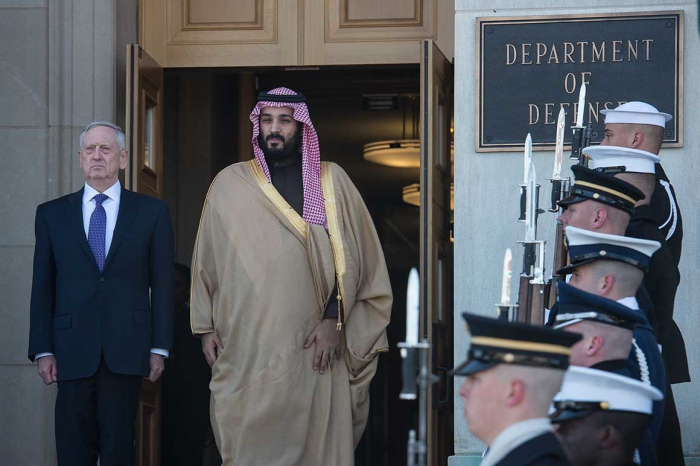The decision to halt refueling warplanes from Saudi Arabia and its allies bombing rebels in Yemen was hailed Friday by Democrats and other longtime supporters of curtailing the Pentagon's support for what they consider an unlawful use of American forces that has contributed to a humanitarian disaster.
But they also called on President Donald Trump and members of Congress to take additional steps -- including cutting off arms and ending the sharing of targeting information -- to further extricate the U.S. military from involvement in Yemen's civil war.
Late Friday, Secretary of Defense Jim Mattis confirmed the decision in a statement saying "we support the decision by the Kingdom of Saudi Arabia, after consultations with the U.S. Government, to use the Coalition's own military capabilities to conduct inflight refueling in support of its operations in Yemen."
The move, first reported by the Washington Post, was hailed as a positive step by those who have been urging the Trump administration to cut off the Saudis and its allies in the conflict, including the United Arab Emirates.
"By finally ending refueling missions for Saudi bombers, the Trump administration is admitting our joint operation in Yemen has been a disaster," said Sen. Chris Murphy, a Connecticut Democrat and member of the Foreign Relations Committee.
Also calling the move “a major victory," Rep. Ro Khanna (D-CA), a vocal advocate of barring U.S. military support to the Saudi-led coalition, said Congress must also pass a resolution that would “ensure that all U.S. involvement is shut off."
The Saudi government issued its own statement insisting it had requested the halt to refueling operations now that it has developed the ability to resupply its fighter jets on its own.
"The Kingdom of Saudi Arabia, and the member countries of the Coalition to Support legitimacy in Yemen, continually pursue improvements to military professionalism and self-sufficiency," the statement said. "Recently the Kingdom and the Coalition has increased its capability to independently conduct inflight refueling in Yemen. As a result, in consultation with the United States, the Coalition has requested cessation of inflight refueling support for it's operations in Yemen."
Since 2015, U.S Air Force aerial tankers have provided mid-air refueling to some of the Saudi-led coalition’s strike aircraft attacking Houthi rebels in Yemen that are backed by Iran.
Some of those strikes have been blamed for deaths of civilians, including a highly publicized bombing of a bus over the summer.
"The Saudi Arabia-led coalition supporting the internationally recognized Yemeni government continued to bomb civilian infrastructure and carried out indiscriminate attacks, killing and injuring civilians," Amnesty International said in a recent report.
The UN High Commissioner for Human Rights has also reported thousands of civilians have died in the conflict and millions have been displaced. It has also fueled the spread of cholera and other diseases due to the destruction of what was already a very poor infrastructure.
The Pentagon previously maintained that by providing refueling and providing intelligence support it was helping to ensure the strikes were more precise and that civilian deaths were being kept to a minimum.
Mattis said in August that the U.S. military support was “not unconditional” but also insisted that the Saudi military was taking proper precautions and following new procedures after undergoing American training.
"The training we have given them we know has paid off," Mattis told reporters. "We have had pilots in the air who recognize the danger of a specific mission and declined to drop even when they get the authority. We have seen staff procedures that put no-fire areas around areas where there’s hospitals or schools."
Read the original article on politico.com.
More about: Pentagon
















































